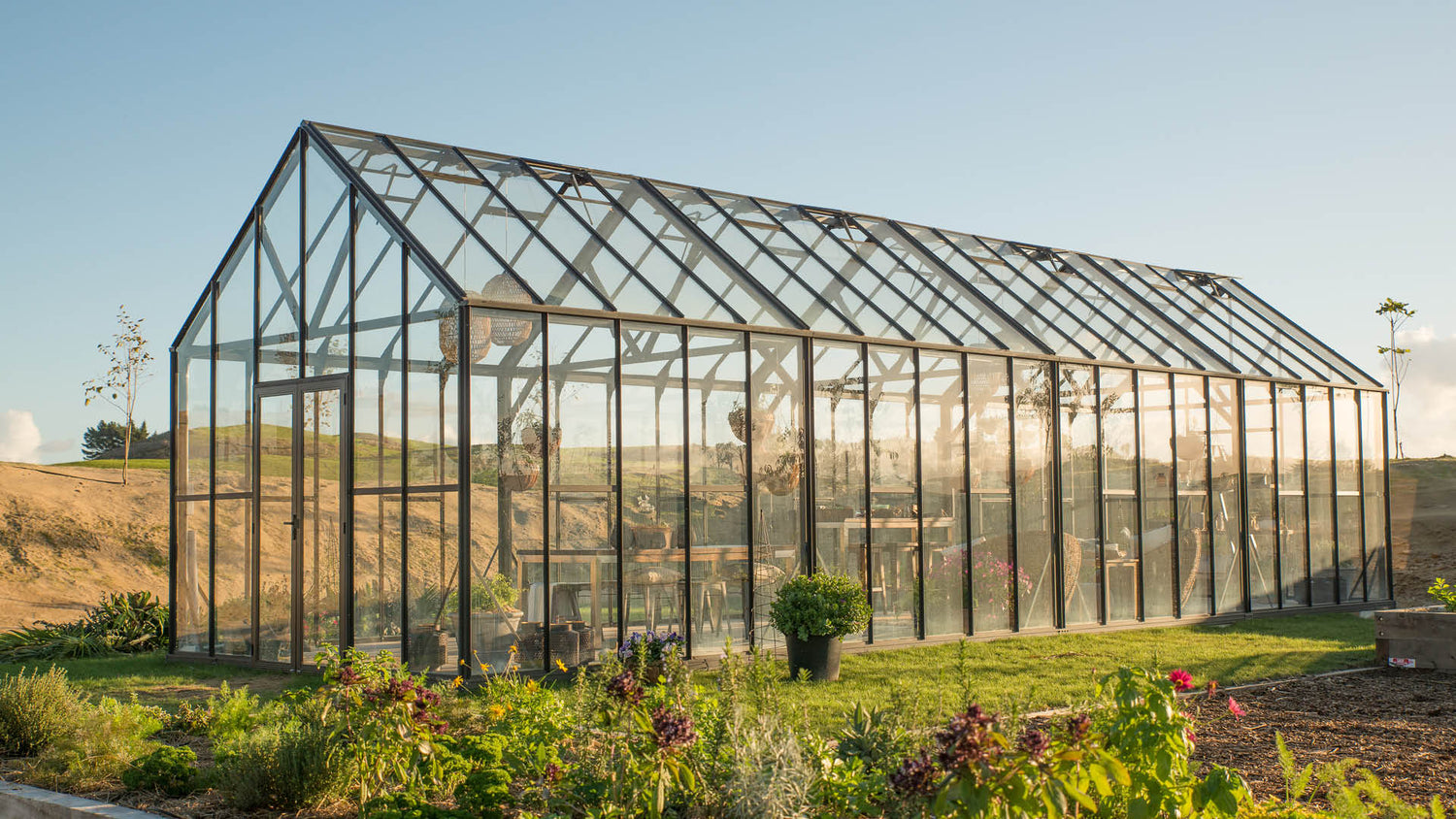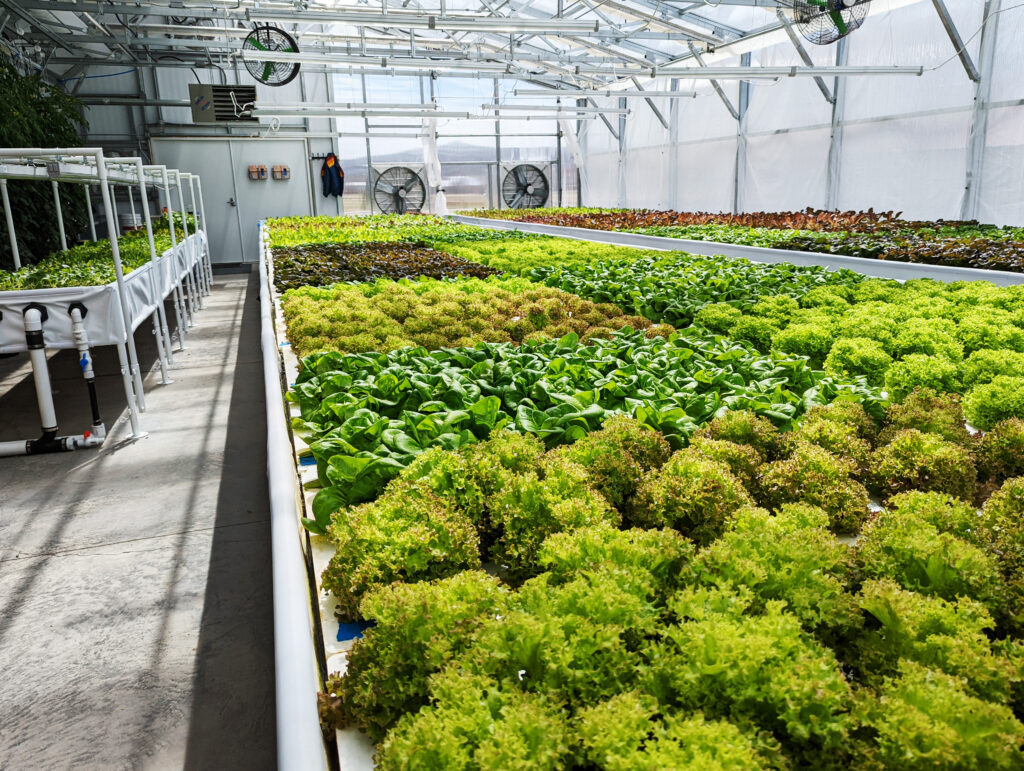Smooth Assimilation: Monarch Greenhouse Installation Utah Specialist Touch
Wiki Article
Greenhouse Farming: Making Best Use Of Plant Returns and Sustainability
With managed settings and decreased water use, greenhouse farming offers the best option for year-round production of fresh produce. Discover the benefits of greenhouse farming and start gaining the advantages today!Advantages of Greenhouse Farming
Are you questioning what makes greenhouse farming so beneficial? Well, allow me inform you! One of the major advantages of greenhouse farming is the capability to manage the setting in which plants are expanded. With a greenhouse, you can manipulate elements like temperature level, humidity, and light to enhance plant growth. This suggests that you can grow crops throughout the year, despite the weather outside.An additional advantage of greenhouse farming is the decrease in water usage. Greenhouses are designed to be water-efficient, with systems that record and reuse water, decreasing wastefulness. This is particularly essential in locations where water shortage is an issue. By utilizing water more effectively, greenhouse farming aids to preserve this precious source.
Additionally, greenhouse farming permits much better insect and disease administration. With the regulated environment, it is simpler to manage the spread and prevent of insects and conditions. This decreases the requirement for dangerous chemicals, making greenhouse-grown plants safer and extra eco-friendly.
Additionally, greenhouse farming offers defense versus extreme weather condition occasions. Plants expanded in greenhouses are shielded from heavy rain, strong winds, and hailstorms, which can damage or destroy outdoor crops. Monarch Custom Greenhouse Utah. This security guarantees a more stable and trusted plant yield, also throughout unforeseeable weather condition conditions

Optimizing Crop Yields With Controlled Settings
To make the most of plant returns in greenhouse farming, you can attain optimal results by controlling the environment. One of the crucial advantages of greenhouse farming is the capability to control these ecological aspects, enabling you to tailor them to the specific requirements of each crop. By executing these managed atmospheres, you can optimize crop yields and achieve consistent, high-quality fruit and vegetables throughout the year.Encouraging Sustainability Via Greenhouse Farming
Optimize sustainability in greenhouse farming by carrying out reliable resource administration techniques. One vital aspect of advertising sustainability is the monitoring of water use. By carrying out systems such as drip irrigation and recirculation, you can substantially minimize water wastage and ensure that every decline counts. Furthermore, using organic and naturally degradable products for parasite control and fertilization can help lessen ecological influence. Integrated Parasite Monitoring (IPM) strategies, for instance, entail using helpful bugs to regulate pests, decreasing the need for harmful chemicals. Additionally, power usage can be decreased by making use of renewable resource sources, such as photovoltaic panels, to power greenhouse operations. This not just reduces reliance on fossil gas but likewise decreases greenhouse gas discharges. Appropriate waste management is one more essential component in promoting sustainability. Carrying out recycling and composting systems can reduce the amount of waste sent to land fills while also supplying nutrient-rich garden compost for plant growth. Finally, including lasting practices in greenhouse style, such as making use of energy-efficient materials and enhancing all-natural lighting, can better boost sustainability. By adopting these resource monitoring strategies, you can add to a much more sustainable future in greenhouse farming.Decreasing Water Usage in Greenhouse Farming
By carrying out effective water monitoring techniques, you can considerably minimize water usage in greenhouse farming. Water is a crucial source in farming, and conserving it not just profits the setting however likewise helps to take full advantage of plant returns and productivity. One efficient technique to decrease water usage is via the usage of drip watering systems. These systems deliver water directly to the plant's origins, lessening evaporation and guaranteeing that every decrease is utilized effectively. Furthermore, monitoring and managing the moisture levels inside the greenhouse can prevent unnecessary water loss. By using sensors and automated systems, Your Domain Name you can change the ventilation and watering appropriately, optimizing water use based on the details demands of your crops. Another method is to catch and reuse rainwater. Accumulating rain from the greenhouse roof and saving it in tanks permits grass soil you to supplement your irrigation needs without relying exclusively on freshwater sources. Moreover, implementing mulching strategies can help keep dirt wetness, lowering the frequency of watering. Mulch acts as a barrier, preventing water dissipation and maintaining the soil cool and moist. By embracing these water-saving practices, you can reduce water waste, preserve sources, and produce an extra lasting future for greenhouse farming.Year-Round Production of Fresh Create in Greenhouses
You can achieve year-round production of fresh produce in greenhouses by carrying out reliable cultivation techniques. Greenhouses offer a controlled atmosphere that permits you to expand plants regardless of the external climate condition. One crucial strategy for year-round production is using synthetic illumination. By supplementing natural sunlight with man-made light, you can expand the growing period and ensure consistent growth throughout the year. Since they are energy-efficient and supply the best spectrum of light for plant growth, led lights are commonly used in greenhouses. In addition, correct temperature level control is critical for year-round production. Greenhouses can be geared up with heating and cooling down systems to preserve ideal temperatures for various crops. This ensures that plants can thrive also throughout the chillier months. Another vital variable is watering. By making use of sophisticated irrigation systems such as drip watering or hydroponics, you can effectively offer water to your plants while minimizing waste. Ultimately, it is vital to on a regular basis keep an eye on and manage parasites click here for more and diseases. Executing integrated insect administration approaches and practicing excellent hygiene will assist safeguard your plants and maintain their health and wellness throughout the year. By executing these techniques, you can make the most of the productivity of your greenhouse and delight in a stable supply of fresh produce all year long.
Conclusion
To conclude, greenhouse farming supplies countless advantages for taking full advantage of crop yields and promoting sustainability. By using regulated atmospheres, farmers can optimize growing conditions and enhance efficiency. Furthermore, greenhouse farming permits decreased water usage, making it an eco-friendly choice. The capacity to generate fresh fruit and vegetables year-round in greenhouses makes sure a consistent supply of healthy food (Monarch Greenhouse builder Utah). Generally, greenhouse farming is a sustainable and reliable technique for meeting the needs of an expanding population while minimizing ecological effect.One of the significant benefits of greenhouse farming is the ability to manage the environment in which plants are grown.To maximize plant yields in greenhouse farming, you can achieve ideal results by controlling the setting. One of the key benefits of greenhouse farming is the ability to regulate these environmental aspects, enabling you to tailor them to the particular demands of each crop.By applying effective water monitoring techniques, you can dramatically minimize water use in greenhouse farming.In final thought, greenhouse farming gives numerous benefits for making the most of plant returns and promoting sustainability.
Report this wiki page